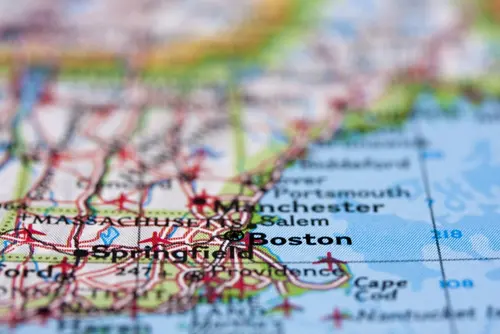Two programs in Massachusetts are helping to spread awareness of energy efficient lighting in the state. Western Massachusetts Electric Co. has begun installing environmentally friendly lighting in 30 businesses throughout downtown Easthampton, Mass., as part of its Main Street Energy Efficiency pilot program, and its doing the work for free.
Meanwhile, on the other side of the state, the Massachusetts Institute of Technology and local utility company NSTAR have decided to renew their joint MIT Efficiency Forward program through 2015. The first phase of the program, which ran from 2010 to 2012, led to a reduction of 34 million kilowatt-hours, or about 15 percent, of total electricity usage on campus. The goals for the second phase are even more ambitious.
A gift for small business owners
WMECO decided to begin the rollout of its Main Street program in Easthampton because of its vibrant downtown and eclectic mix of small businesses, but the plan is for the city to be a jumping off point for the rest of Western Massachusetts. By conducting energy audits and installing energy efficient products like commercial LED lighting and occupancy sensors in small businesses for free, the utility company is leading the way in making those technologies commonplace, especially for retrofits of older buildings where they are sorely needed.
"It's just wonderful that they're actually willing to help businesses, especially here," said Barbara Paul, owner of Perfect Arrangements at 79 Union St. "It's an old town, the buildings are old that we're utilizing and we appreciate any help in updating them."
MIT an innovator in lighting technology adoption
On MIT's campus, the Efficiency Forward program was so successful in its first two years that university officials eagerly renewed their agreement with NSTAR. Beyond making nearly every building on campus environmentally cleaner, the financial savings have been dramatic, topping $4 million since the program's inception.
Not only have specific buildings, like the newly built Sloan School of Management, produced practical results, they have led to a changing attitude among staff and students at the university. Offering amenities like an on-campus stockroom where older bulbs can be swapped for new LED light bulbs, people at MIT are getting hands-on experience and better understanding of how LED lighting systems can be part of the university's future.
Massachusetts is setting a standard for how citizens and small businesses can make the switch to smarter lighting. And with the success of these free programs, it is showing that the costs associated with new technologies are rapidly becoming more affordable.





